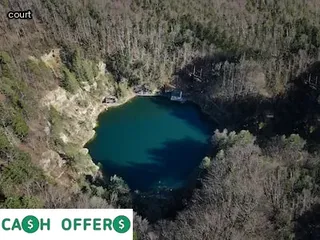In Vermont, a probate filing can be done by an executor of the estate, a personal representative of the estate, or in some cases a creditor. In order for someone to act as an executor of the estate, they must be nominated in the decedent's will.
If there is no will or if the will does not include an executor nomination, then any person who has a financial interest in the estate can petition to become a personal representative. Creditors may also petition to become a personal representative if their claim is substantial enough that it cannot otherwise be paid from the assets of the estate.
Any person appointed as a personal representative must accept their appointment and file it with the court in order to assume authority over the estate.

Navigating the probate process for real estate in Vermont can be a complicated and lengthy endeavor. The process of settling an estate in Vermont requires the filing of a petition with the local probate court.
This petition should include information about the deceased, as well as any surviving spouses or heirs to the estate. The next step is to locate and secure assets, such as real estate, that are part of the estate.
In addition to real estate, personal property also needs to be identified and inventoried for potential sale or distribution. Once all assets have been collected, it is important to pay any outstanding debts associated with the estate.
Finally, after all legal obligations have been met, any remaining assets are distributed according to state law or per instructions from a valid will. It is beneficial for those navigating this complex system to seek guidance from legal professionals who specialize in probate law in Vermont.
In Vermont, any real estate owned by the deceased at the time of death must go through probate. This includes any primary residence, second homes, investment properties, undeveloped land and timeshares.
Additionally, any tangible property such as cars, boats and furniture must be probated if they are owned solely by the deceased or held jointly with another party. Financial assets such as bank accounts, stocks and bonds may also require probate if prior arrangements have not been made for them to pass outside of probate.
Furthermore, any life insurance policies or retirement accounts that name the deceased as beneficiary will need to go through the probate process to be transferred to the new beneficiaries. Any debts of the deceased are also settled during this process.
In summary, all assets owned by an individual at the time of his or her death must undergo probate in Vermont before they can be transferred to new owners.

Navigating the probate process for real estate in Vermont can be a complex and daunting task. It is important to prepare for probate court by understanding the basics of the process, gathering all of the necessary documents, and being aware of any special requirements that may apply.
The first step is to obtain a copy of the decedent's will from either their attorney or the probate court itself. Next, you must identify all assets owned by the decedent at death and determine if they are subject to probate.
If so, you must complete an inventory list that describes each asset accurately and create an accurate valuation of those assets. After this is completed, you must then file a petition with the court that includes information about the decedent's estate as well as any requests related to its administration.
Additionally, it is important to understand any legal fees associated with administering an estate as well as any applicable taxes that must be paid before distribution of assets can occur. Following these steps will help ensure a smooth transition through the probate process in Vermont.
Navigating the probate process for real estate in Vermont can be a daunting task, but understanding the probate code in the state can make it easier. The probate code of Vermont outlines the legal process of transferring property from an owner who has passed away to their heirs or beneficiaries.
It is important to understand that this process may vary depending on whether or not a will was created and if so, what its contents are. Furthermore, different types of property such as land, vehicles, furniture and jewellery must be taken into consideration when dealing with probate cases in Vermont.
In addition, the executor of a will must also complete particular steps including filing court documents and collecting any applicable debts owed to the deceased person before distributing assets according to their wishes. Understanding these processes and seeking professional advice can help ensure that all aspects of navigating the probate process are handled correctly.

Navigating the probate process for real estate in Vermont can be daunting; however, understanding how to establish beneficiary rights during probate is a critical part of the process. Beneficiaries are those people who are entitled to receive the deceased person's assets from their estate.
In order for beneficiaries to receive their inheritance, they must go through the probate court process. In Vermont, this involves submitting an application for probate and providing proof of entitlement to the assets such as a will or trust document.
Once this is complete, the court will review all relevant documents and determine if there are any legal issues that need to be addressed before distributing the assets accordingly. Additionally, it is important to note that any debts or taxes owed by the deceased must also be taken into account when going through the probate process.
Furthermore, if there are disputes amongst beneficiaries or family members regarding who should receive what assets, then these matters may have to be litigated in court as well. Finally, if any beneficiary wishes to contest their inheritance once it has been determined by the court, they must do so within a set timeline established by state law.
All-in-all, understanding how to establish beneficiary rights during probate in Vermont is essential in order for beneficiaries to receive their inheritance effectively and efficiently.
Navigating the probate process for real estate in Vermont can be complex and often presents unique challenges. It is important to understand the tax and fee implications of the process in order to avoid additional taxes and fees.
In Vermont, there are a few key steps to ensure you are avoiding any unexpected or additional costs when sorting out a decedent’s property. The first step is to identify which assets are considered part of probate and which ones are not.
Assets that need to go through probate include real estate, personal belongings, investments, retirement accounts, bank accounts, and insurance policies. Then review all documents related to the decedent’s estate such as their will, trust agreement, and any other paperwork that could provide clues on how the assets should be distributed.
Finally, it is essential to understand Vermont’s tax laws as they relate to inheritance taxes so you know how much you may owe in taxes if applicable. By understanding these steps before beginning the probate process for real estate in Vermont, individuals can help ensure they are not hit with any unexpected taxes or fees that can delay distributions or complicate matters further.

The probate process is necessary when transferring real estate in Vermont, and it can be a complex process to navigate. It is important to know when you need to initiate the probate process, as there are certain deadlines that must be followed.
In Vermont, the timeframe for starting the probate process depends on the type of property being transferred and whether or not the deceased had a valid will. If a will was left behind, then the probate process should begin within three months of the death of the testator.
Additionally, if there is real estate in Vermont that does not have a will associated with it, then it must go through a process known as ancillary probate which must start within six months of death. It is also important to keep in mind that once an executor has been appointed by the court, they have four months from that date to petition for transfer of title.
The sooner you start navigating the probate process for real estate in Vermont, the better off you will be.
Navigating the probate process for real estate in Vermont can be a daunting task. The first step is to determine if probate is necessary by filing an affidavit or petition with the court.
The next step involves collecting all of the assets from the deceased person’s estate, such as bank accounts and real estate. After that, any debts associated with the estate must be paid off.
If there are disputes about who can act as executor of the estate or who will receive certain assets, then it may be necessary to get a court order to resolve these matters. Once all of these steps have been completed, it's time to close out the estate by distributing assets according to the provisions of the will or other legal documents.
Finally, an accounting of all transactions related to closing out the estate must be filed with the court. This includes a list of all creditors and debtors and how much was paid out on each account.
With careful planning and due diligence, navigating the probate process for real estate in Vermont can help ensure that all parties involved properly receive what they're entitled to when closing an estate in VT.

When it comes to the probate process for real estate in Vermont, a legally executed will is an essential document. If a will isn't properly executed, the consequences can be serious.
In this case, the decedent's assets will be distributed according to Vermont law instead of according to their wishes. This could lead to unanticipated delays and additional costs for those involved as well as potentially undesired outcomes for heirs and beneficiaries.
There are specific legal requirements that must be met in order for a will to be considered valid in Vermont. It must be signed by two witnesses and notarized in order for it to take effect upon death.
If any of these conditions aren't fulfilled, the court may invalidate the entire will or parts of it, meaning it won't be used during the probate process for real estate in Vermont. When considering how to proceed when a will is not properly executed, consulting with an experienced attorney is often recommended as they can provide guidance on how best to move forward with the probate process.
A Personal Representative (PR) in Vermont is responsible for settling an estate and is entitled to receive compensation for their services. Depending on the size and complexity of the estate, a PR may be entitled to a percentage of the value of the real estate assets.
The probate process can be complicated, so it is important to understand how a PR gets paid and what steps are necessary to settle an estate. Before any compensation can be received, the PR must first submit a petition to the court that outlines their duties and responsibilities as well as their request for payment.
Once this petition has been approved by the court, the PR will be able to receive compensation. The amount of compensation depends on whether or not there are any heirs in addition to himself/herself; if there are heirs, then the total amount of compensation may be reduced accordingly.
A PR must also take into consideration other costs associated with settling an estate such as legal fees and other administrative expenses. It is also important to note that payments made in Vermont must adhere to all applicable state laws; this includes taxes related to inheritance, capital gains, and other financial obligations.
Navigating the probate process for real estate in Vermont can be a daunting task. The probate process is what happens when someone passes away and leaves behind property or assets.
In Vermont, the probate process can involve the court system and is required to legally transfer real estate from one person to another. It involves filing paperwork with the court, paying any outstanding debts or taxes, and providing proof of ownership.
The process also includes submitting a petition to appoint an executor who will oversee the administration of the deceased’s estate as well as distributing any remaining assets. Depending on the complexity of the estate, this process can take several months or even years.
In addition, there could be additional fees or taxes associated with transferring property through probate in Vermont. Understanding how probate works in Vermont and taking the necessary steps to navigate it is essential for those handling an estate on behalf of a deceased loved one.

In Vermont, any estate worth more than $10,000 must go through probate before assets can be distributed to its heirs. This means that any real estate owned by the deceased must be evaluated and divided according to state laws.
The probate process for real estate in Vermont requires both a filing fee and an executor's commission on top of the cost of a professional appraiser. The court will then assign a court-appointed representative or administrator to oversee the distribution of assets, but this may or may not be the same person who is listed as executor in the will.
In cases where there are multiple beneficiaries, it is important to consider all legal costs associated with navigating the probate process before making decisions about how to distribute assets.
There are several strategies that can be used to help individuals in Vermont avoid probate for real estate. The first is through joint tenancy with right of survivorship.
This is when two or more individuals own the property together and if one dies, the other automatically inherits the deceased's share and it does not need to go through probate court. Another option is setting up a trust that owns the real estate, which allows an individual to name a trustee who will manage and transfer the property after death without needing to go through probate.
Additionally, setting up a limited liability company (LLC) can be used to own the real estate and help avoid having it pass through probate. Finally, making sure all assets are titled correctly with beneficiaries listed on bank accounts and other accounts will help ensure they pass directly to those named without going through probate court.
Understanding these options can help individuals successfully navigate the probate process for real estate in Vermont.
When someone passes away without a will in Vermont, the process of navigating probate for the decedent’s real estate is known as estate administration. The court-appointed estate administrator or personal representative is responsible for identifying and collecting all assets belonging to the deceased person, paying any debts owed by the estate, and distributing any remaining assets according to Vermont law.
If no will exists, then Vermont’s intestacy laws dictate who will receive the assets of the deceased. Generally speaking, if there is a surviving spouse and children, they are entitled to an equal share of the decedent’s real estate.
However, if there is no surviving spouse or children, then other family members may claim the property. It is important to note that each state has its own laws governing how real estate passes after death without a will; therefore it is always best to consult with an experienced attorney when navigating probate for real estate in Vermont.